Ebola’s heavy toll on study authors

Credit (left to right): Mambu Momoh; Simbirie Jalloh; Pardis Sabeti (2); Mike DuBose
The five co-authors of a Science study who contracted Ebola and died.
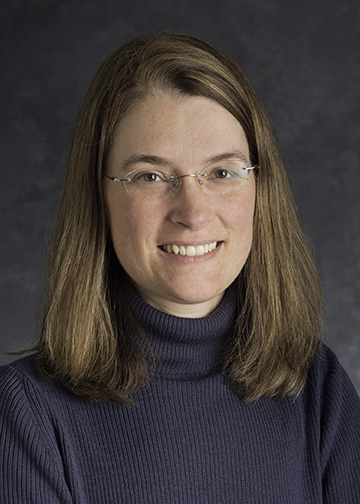 By Gretchen Vogel I 28 August 2014 3:45 pm
By Gretchen Vogel I 28 August 2014 3:45 pm
The ongoing Ebola virus disease outbreak is taking an appalling toll on health workers in West Africa. More than 240 have been infected and more than 120 have died. At Kenema Government Hospital (KGH) in Sierra Leone, where the country’s first case was diagnosed, more than 2 dozen nurses, doctors, and support staff have died of Ebola. KGH is where many of the samples were collected for a paper published online today in Science that analyzes the genetics of the virus responsible for the disease. Highlighting the danger to those caring for infected people, five of the paper’s co-authors—all experienced members of the hospital’s Lassa fever team—died of Ebola before its publication. (A sixth co-author, uninfected, also recently died as well.)
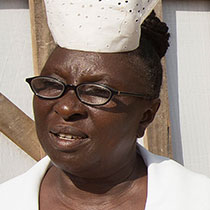 Mbalu Fonnie, a licensed nurse midwife and the nursing supervisor of the KGH Lassa Ward, was “matron of nursing at KGH,” says Robert Garry, a study co-author and virologist at Tulane University in New Orleans, Louisiana. Mrs. Fonnie had more than 30 years of experience treating Lassa fever, a hemorrhagic illness with many symptoms similar to Ebola, and specialized in the management of severe Lassa cases in pregnant women. She began her career working at Nixon Memorial Methodist Hospital in Segbwema, Sierra Leone, and participated there in Lassa fever research trials conducted by the Centers for Disease Control and Prevention. “Aunty Mbalu was a mother figure to the entire staff,” Garry says. She had survived Lassa fever. She was infected with Ebola while caring for one of her fellow nurses, who was pregnant and had Ebola.
Mbalu Fonnie, a licensed nurse midwife and the nursing supervisor of the KGH Lassa Ward, was “matron of nursing at KGH,” says Robert Garry, a study co-author and virologist at Tulane University in New Orleans, Louisiana. Mrs. Fonnie had more than 30 years of experience treating Lassa fever, a hemorrhagic illness with many symptoms similar to Ebola, and specialized in the management of severe Lassa cases in pregnant women. She began her career working at Nixon Memorial Methodist Hospital in Segbwema, Sierra Leone, and participated there in Lassa fever research trials conducted by the Centers for Disease Control and Prevention. “Aunty Mbalu was a mother figure to the entire staff,” Garry says. She had survived Lassa fever. She was infected with Ebola while caring for one of her fellow nurses, who was pregnant and had Ebola.
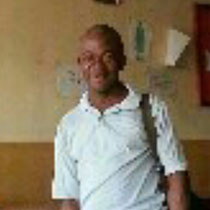 Alex Moigboi, a registered nurse with more than 10 years of experience caring for Lassa fever patients, was also infected while treating the same colleague. Mr. Moigboi “loved to interact and raise everyone’s spirits with his great sense of humor,” Garry says. “Always with a smile on his face … the last one off the dance floor.”
Alex Moigboi, a registered nurse with more than 10 years of experience caring for Lassa fever patients, was also infected while treating the same colleague. Mr. Moigboi “loved to interact and raise everyone’s spirits with his great sense of humor,” Garry says. “Always with a smile on his face … the last one off the dance floor.”
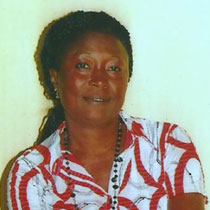 Alice Kovoma was helping Mrs. Fonnie treat the pregnant nurse when she, too, became infected. A Lassa Ward nurse for more than 6 years, Ms. Kovoma was “a wonderful person … very dedicated and professional with a devotion to the patients and her teammates,” Garry says.
Alice Kovoma was helping Mrs. Fonnie treat the pregnant nurse when she, too, became infected. A Lassa Ward nurse for more than 6 years, Ms. Kovoma was “a wonderful person … very dedicated and professional with a devotion to the patients and her teammates,” Garry says.
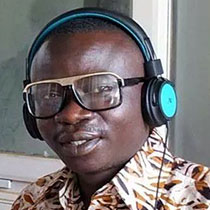 Mohamed Fullah, a laboratory technician who helped on the study, was an instructor at Eastern Polytechnic College in Sierra Leone, where he served for more than 10 years. Extremely popular with his students, Mr. Fullah had worked part time in the Lassa fever laboratory for 6 years. Mr. Fullah was intense, disciplined, and very hard-working, Garry says. He was “very dedicated and serious about the laboratory and science in general.” He lost several of his close family members to Ebola and presumably contracted the disease from one of them.
Mohamed Fullah, a laboratory technician who helped on the study, was an instructor at Eastern Polytechnic College in Sierra Leone, where he served for more than 10 years. Extremely popular with his students, Mr. Fullah had worked part time in the Lassa fever laboratory for 6 years. Mr. Fullah was intense, disciplined, and very hard-working, Garry says. He was “very dedicated and serious about the laboratory and science in general.” He lost several of his close family members to Ebola and presumably contracted the disease from one of them.
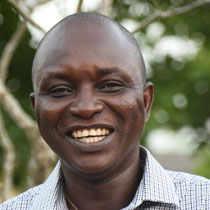 Sheik Humarr Khan was the director of the national Lassa fever program for the Ministry of Health and Sanitation in Sierra Leone and an expert on treating viral hemorrhagic fevers like Lassa fever and Ebola virus disease. He studied medicine at the University of Sierra Leone and completed a residency in internal medicine at Korle Bu Teaching Hospital in Ghana. He worked with the African Centre of Excellence for Genomics of Infectious Disease, the Human Heredity and Health in Africa Initiative, and was a founding member of the Viral Hemorrhagic Fever Consortium. Khan had treated Lassa fever patients for more than 10 years. At the time of his death, he was helping coordinate his country’s response to the Ebola outbreak. Widely respected by colleagues, President Ernest Bai Koroma hailed him as a “national hero.” His death sparked widespread discussion about whether he should have been treated with the untested drug ZMapp. “I will miss his smile and good nature, and will always admire his exceptional bravery, loyalty, and strength,” writes Pardis Sabeti of the Massachusetts Institute of Technology, who led the published genetics study, in a tribute pagededicated to Dr. Khan.
Sheik Humarr Khan was the director of the national Lassa fever program for the Ministry of Health and Sanitation in Sierra Leone and an expert on treating viral hemorrhagic fevers like Lassa fever and Ebola virus disease. He studied medicine at the University of Sierra Leone and completed a residency in internal medicine at Korle Bu Teaching Hospital in Ghana. He worked with the African Centre of Excellence for Genomics of Infectious Disease, the Human Heredity and Health in Africa Initiative, and was a founding member of the Viral Hemorrhagic Fever Consortium. Khan had treated Lassa fever patients for more than 10 years. At the time of his death, he was helping coordinate his country’s response to the Ebola outbreak. Widely respected by colleagues, President Ernest Bai Koroma hailed him as a “national hero.” His death sparked widespread discussion about whether he should have been treated with the untested drug ZMapp. “I will miss his smile and good nature, and will always admire his exceptional bravery, loyalty, and strength,” writes Pardis Sabeti of the Massachusetts Institute of Technology, who led the published genetics study, in a tribute pagededicated to Dr. Khan.
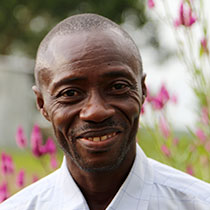 Sidiki Saffa, who died of a stroke unrelated to Ebola while the paper was in press, was a laboratory technician who collected blood samples and processed them. Mr. Saffa had more than 20 years of experience collecting blood samples from Lassa fever patients. “Very well organized and great with the record keeping … [he was] always on the move from the clinic to the laboratory and back,” Garry says. “He was the lifeblood of the operation.”
Sidiki Saffa, who died of a stroke unrelated to Ebola while the paper was in press, was a laboratory technician who collected blood samples and processed them. Mr. Saffa had more than 20 years of experience collecting blood samples from Lassa fever patients. “Very well organized and great with the record keeping … [he was] always on the move from the clinic to the laboratory and back,” Garry says. “He was the lifeblood of the operation.”



